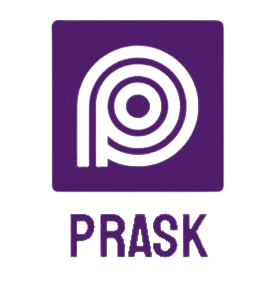Due to the varied sources and sorts of plastic films, customization in reusing equipment and forms is vital for handling particular reusing needs efficiently. Custom reusing solutions can address diverse contamination levels, material properties, and end-product necessities, guaranteeing the generation of high-quality reused plastic.
These tailored approaches upgrade the overall productivity of recycling operations, support the circular economy, and help mitigate the natural effects of plastic waste. By optimizing reusing forms through customization, ready to better oversee plastic squandering and contribute to a more feasible future.
Investigating Customization Choices for Plastic Film Recycling
Here is a comprehensive look at the customization alternatives accessible for plastic film recycling machine, which incorporate tailored solutions for diverse contamination levels, material properties, and end-product necessities, guaranteeing proficient taking care of and high-quality recycled plastic.
Capacity Variations
Plastic film recycling machines can be customized based on the desired processing capacity. Standard machines handle capacities extending from 300 kg/h to 2000 kg/h, but customization allows for hardware that can prepare more or less depending on the needs of the reusing office.
Contamination Handling
The level of contamination in plastic films can change altogether. Customization choices incorporate progressed washing systems designed to handle high levels of contamination, such as agrarian films with soil and pesticide residues or intensely ruined bundling films.
Modular Design
Custom recycling lines can be measured, permitting the addition or expulsion of particular components based on the reusing necessities. This adaptability is useful for offices that may have to overhaul or alter their forms over time.
Advanced Sorting Systems
Customized sorting systems can incorporate optical sorters, and near-infrared (NIR) sensors, and discuss classifiers to guarantee the exact division of distinctive sorts of plastic films and the removal of non-plastic contaminants.
Numerous Washing Stages
For films with changing defilement levels, customization can include different washing stages, each tailored to expel particular types of contaminants. This may include starting rough cleaning, followed by high-speed contact cleaning, and at long last, drift cleaning for intensive disinfecting.
Grinding Washers
Customized grinding washers can be designed with shifting speeds and edge setups to handle diverse sorts of plastic films and defilement levels viably. These washers utilize mechanical disturbance to clean the plastic drops, guaranteeing that indeed the foremost adamant buildups are evacuated.
Drying Systems
Depending on the sort of plastic film and the level of cleanliness required, drying systems can be customized to utilize hot discuss, infrared innovation, or centrifugal drying strategies. Efficient drying is vital to anticipate moisture-related issues in the consequent preparation stages.
Pelletizing Equipment
Pelletizing equipment can be custom-made to create pellets of particular sizes and shapes, depending on the necessities of the end-user applications. Customization in pelletizing guarantees that the reused plastic meets the quality and execution guidelines required for different mechanical applications.
Polyethylene (PE) Films
PE films, commonly utilized in packaging and agricultural applications, require specialized reusing forms. Customization choices incorporate hardware designed to handle the tall adaptability and thinness of PE films, guaranteeing effective pulverizing, cleaning, and drying.
Polypropylene (PP) Films
PP films, utilized in applications like food packaging and materials, moreover require tailored reusing arrangements. Custom gear can be planned to handle the distinctive dissolving points and chemical properties of PP films, guaranteeing high-quality reused yield.
Multi-Layer Films
Multi-layer films, which combine distinctive sorts of plastics, present interesting reusing challenges. Customization can incorporate specialized sorting and division hardware to bargain with these complex materials viably.
Food-Grade Applications
For reused plastic films aiming for food bundling, customization guarantees that the complete reusing handle meets rigid hygiene and quality benchmarks. This incorporates the use of food-safe cleaning operators, intensive purification forms, and exact quality control measures.
Mechanical Applications
For mechanical applications, customization can center on creating reused plastic that meets particular mechanical and chemical properties required for manufacturing solid products, development materials, and automotive components.
Conclusion
Customization in plastic film recycling is imperative for addressing the diverse needs of the recycling industry and guaranteeing the effective processing of distinctive types of plastic films. By fitting reusing gear and forms to handle particular materials, contamination levels, and end-product prerequisites, reusing offices can optimize their operations and create high-quality recycled plastic.










